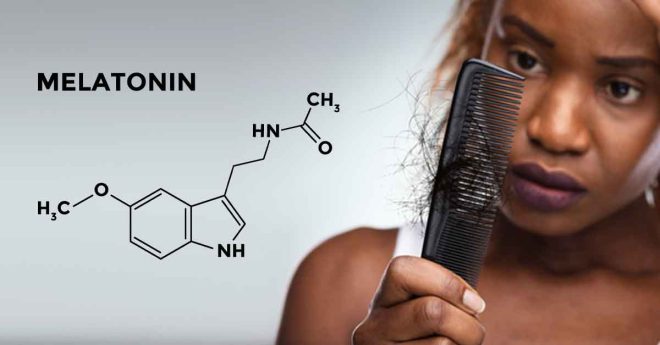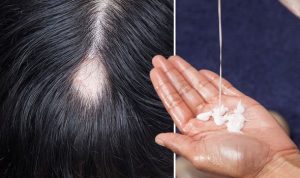
Does melatonin help hair growth?
Melatonin is a hormone produced in our body that regulates our sleep and wakefulness. So what does it do for hair growth? We tell you everything you need to know about melatonin for hair growth.
Hair loss can be caused by hygiene problems, genetics, hormonal imbalance, or frequent styling with hot tools. Hair loss has many causes and many solutions. Melatonin is considered a powerful component of hair. It is a natural sleep hormone that will also be good for your hair. It is edible and can be used cosmetically. We asked experts about the benefits of melatonin for hair growth and how to use it.
What is melatonin?
Melatonin is a chemical produced by the pineal gland in the brain. This hormone plays an important role in regulating circadian rhythms, which are important parts of the body clock that determine sleep-wake patterns.
In addition to its important function of regulating sleep, melatonin has other important functions. It has antioxidant properties, meaning it neutralizes harmful free radicals in the body. For this reason, dermatologists say that it protects cells from oxidative stress and damage.
Because of its role in regulating sleep, melatonin is often found as a dietary supplement. It is especially popular in treating sleep disorders such as insomnia and relieving jet lag, which affects normal sleep patterns.

How does melatonin help hair growth?
According to a 2012 study published in the International Journal of Trichology, topical melatonin applied topically may be used to treat male pattern baldness, a type of hair loss. Experts say that melatonin is promising in hair treatment because it has many properties, especially its strong antioxidant effects.
Oxidative stress can cause hair loss, and free radicals can damage the hair follicle, causing premature hair loss and weakening of hair. Melatonin’s antioxidant properties help reduce this damage by neutralizing free radicals. Therefore, it protects hair follicles against oxidative stress. This protection reduces hair damage and loss and keeps the hair healthy.
Another important way melatonin helps prevent hair loss is by influencing hair growth. The hair follicle goes through several stages: anagen (anagen), transformation (catagen) and shedding (telogen). Melatonin can delay the anagen phase, which means hair can stay in the growth phase longer. Dr. Aderao explains that this will reduce the frequency of hair entering the shedding phase, thus increasing hair density and reducing hair loss.
In conditions such as male pattern baldness, where hair loss is affected by androgens (male hormones), melatonin may act as an anti-androgen. It reduces the effects of androgens on hair loss by modulating androgen receptors in hair follicles. Melatonin also affects aromatase, which converts male hormones into estrogen. It affects hormonal balance and is good for protecting hair.

How to use melatonin in hair care?
Melatonin medications are available but are often used in cosmetic formulations such as serums and lotions for hair growth. This product is designed to be applied directly to the scalp. Choose a melatonin product specifically designed to be applied to hair. Apply melatonin directly to your scalp, focusing on areas with dry skin or hair loss. Use the included applicator or your fingertips to distribute the solution evenly. Gently massage your scalp for a few minutes to ensure that the melatonin is absorbed into the scalp and reaches the hair follicles.
You can use melatonin pills once a day for several months. Experts say that the best time to use melatonin, which mimics your body’s natural melatonin production, is at night. This increases the effectiveness of the treatment and promotes better absorption.
What are the side effects of using melatonin in hair care?
Melatonin is generally considered safe, especially when used topically. However, as with any supplement or treatment, it may cause side effects in some people.
- One of the most common side effects of melatonin is scalp irritation. You may experience redness, itching, or burning at the application site. These reactions are usually mild and go away on their own, but if they persist or become severe, see your doctor.
- Anaphylaxis is another, although rare, side effect. Redness, swelling, or difficulty breathing may develop.
- People with certain medical conditions or taking other medications should use melatonin with caution. For example, people with autoimmune diseases, cancer patients, or those taking medications that affect the immune system should consult a doctor before using melatonin.
- Pregnant or breastfeeding women should seek medical advice before taking melatonin.

You can use melatonin topically to stimulate hair growth, but follow the directions for use to avoid side effects. You also need to follow a hair care routine and eat a healthy diet that contains vitamins and minerals essential for healthy hair.
